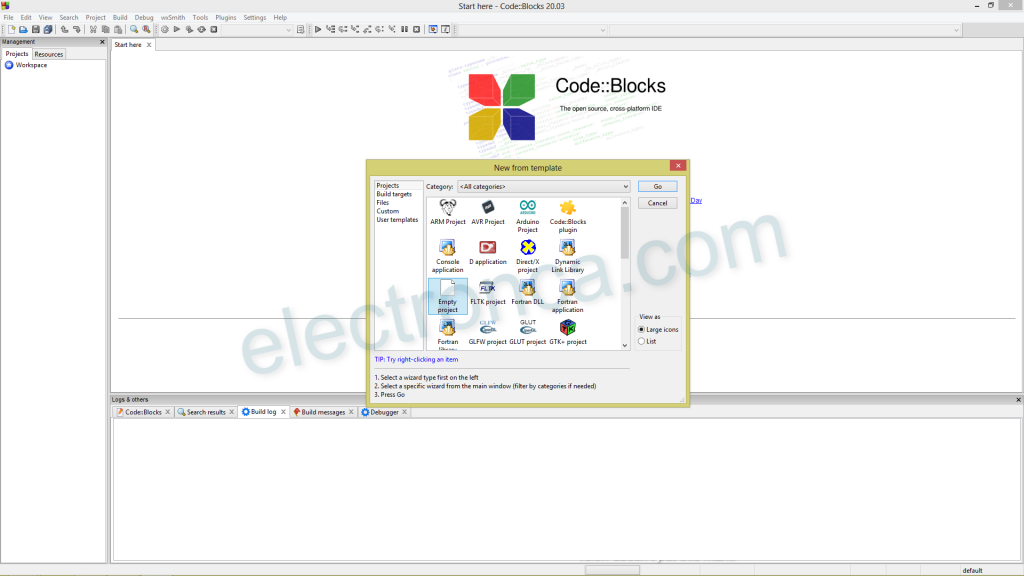1-Intro to C Programming Language
C Programming Lessons, Learn C Programming, Introduction to C Language, How to Program with C
C language developed in 1972 by Dennis M. Ritchie at the Bell Telephone Laboratories.
C is a powerful general-purpose programming language. It’s being used to developing operating systems, databases, compilers, and so on.
Why Should We Learn C ?
Easy to learn
Can be used for low-level tasks called machine language
A structural language
Can be compiled on different computer platforms
Getting Set Up – Finding a C Compiler
A compiler is the first thing you will need before you start programming in C. What is a compiler, you ask? A compiler turns the program that you write into an “executable” that your computer can actually understand and run.
For Windows users; Code::Blocks
For Linux users; gcc
For Mac users; XCode
Also some online compilers can be used for simple examples, such;
https://www.programiz.com/c-programming/online-compiler/
https://replit.com/languages/c
Let’s Start with First Simple Code
First, we need to create a blank Project

#include <stdio.h>
int main()
{
/* my first program in C */
printf("Hello, World! \n");
return 0;
}then type the code in created “New File” when you click “Build & Run” button, output of the IDE will be like given below.

Let’s take a closer look at this simple code we wrote;
- Lines starting with the # sign are processed by the preprocessor before the program is compiled.
- stdio.h is the standard input output header file. By including header files, you can gain access to many different functions. The printf function is included in stdio.h.
- int main() is part of every C program. The parentheses after the word main indicate that it is one of the program building blocks called functions.
- C programs can contain more than one function, but one of them must be main. In C, every program starts by running the main function. { curly braces must be written at the beginning and end of each function.
- The printf function is the standard C way of displaying output on the screen.
- The \n escape sequence means a new line and causes the cursor to move to a new line.
*Hint!
Since printf perceives the \ sign as an escape character, it should be used as \\ if you want to print the \ sign on screen, and when you want to print “, it should be used as \”.
Examples:
printf(“Welcome to “);
printf(“C Language!\n);
Output is:

printf(“Welcome to\n C Language\n”);
Output is:


